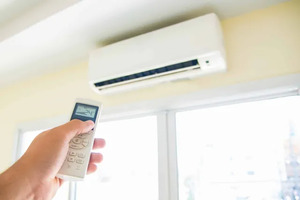When to Repair and When to Replace Your Air Conditioner?
Cuerpo
Signs Your Air Conditioner Needs Repair:
When your air conditioner starts acting up, it's essential to recognize the signs that indicate it's time for repair:
- Unusual Noises or Smells: Strange noises or odors emanating from your AC unit can indicate underlying issues that require attention from Emergency AC Repair Miami Beach experts.
- Poor Airflow: Insufficient airflow can result from clogged filters, ductwork issues, or compressor problems, all of which warrant prompt repair.
- Leaks or Moisture Buildup: Any signs of leaks or moisture around your air conditioner should be addressed immediately to prevent further damage.
- Inconsistent Cooling: If certain areas of your home feel cooler than others or if the temperature fluctuates unpredictably, it's a sign that your AC system is struggling to maintain consistent cooling.
Factors to Consider Before Repairing:
Before opting for repairs, it's crucial to weigh several factors to ensure you're making the most cost-effective decision in the long run:
- Age of the Air Conditioner: Older units may require more frequent repairs and may not be as energy-efficient as newer models.
- Cost of Repairs vs. Replacement: Compare the cost of repairs with the potential savings and benefits of investing in a new, more efficient unit.
- Energy Efficiency of the Current Unit: Evaluate whether repairing your existing air conditioner will improve its energy efficiency or if replacement is a more cost-effective option in the long run.
Benefits of Repairing Your Air Conditioner:
Repairing your air conditioner can offer several benefits, particularly in the short term:
- Cost-Effectiveness in the Short Term: Repairing minor issues can be more budget-friendly than investing in a new unit, especially if your air conditioner is relatively young.
- Maintaining Current System Familiarity: If you're satisfied with the performance of your current unit and prefer to avoid the hassle of learning how to operate a new system, repairing may be the best option.
- Environmental Impact of Disposal: Repairing your existing air conditioner reduces the need to manufacture new units, thereby lowering your carbon footprint.
Signs Your Air Conditioner Needs Replacement:
Despite your best efforts to maintain your air conditioner, there may come a time when replacement becomes inevitable:
- Advanced Age: Air conditioners typically have a lifespan of 10-15 years, after which they may become less reliable and more prone to breakdowns.
- Frequent Breakdowns: If your air conditioner requires frequent repairs or if the cost of repairs exceeds the value of the unit, it's time to consider replacement.
- High Energy Bills: Older, inefficient air conditioners can significantly raise your energy bills, indicating that it's more cost-effective to invest in a newer, energy-efficient model.
- Significant Repair Costs: If the cost of repairing your air conditioner is close to or exceeds the cost of a new unit, replacement may be the more economical choice in the long run.
Factors to Consider Before Replacing:
Before replacing your air conditioner, consider several factors to ensure you're investing in the right unit for your needs:
- Energy Efficiency Ratings of New Units: Look for air conditioners with high SEER (Seasonal Energy Efficiency Ratio) ratings to maximize energy savings and reduce your carbon footprint.
- Available Warranties and Guarantees: Consider the warranty coverage and guarantees offered by manufacturers, as well as the brand's reputation for reliability and customer service.
- Installation Costs: When budgeting for a new air conditioner, factor in the cost of professional installation, as improper installation can affect performance and efficiency.
Benefits of Replacing Your Air Conditioner:
Investing in a new air conditioner offers numerous benefits:
- Increased Energy Efficiency and Cost Savings: Newer air conditioners are designed to be more energy-efficient, resulting in lower utility bills and reduced environmental impact.
- Improved Indoor Air Quality: Advanced filtration systems and technology in newer air conditioners can help remove allergens, pollutants, and airborne contaminants, improving indoor air quality and respiratory health.
- Access to Modern Features and Technology: From programmable thermostats to smart home integration, newer air conditioners offer a range of features and technologies that enhance comfort, convenience, and control.
Final Recommendations:












Comentarios